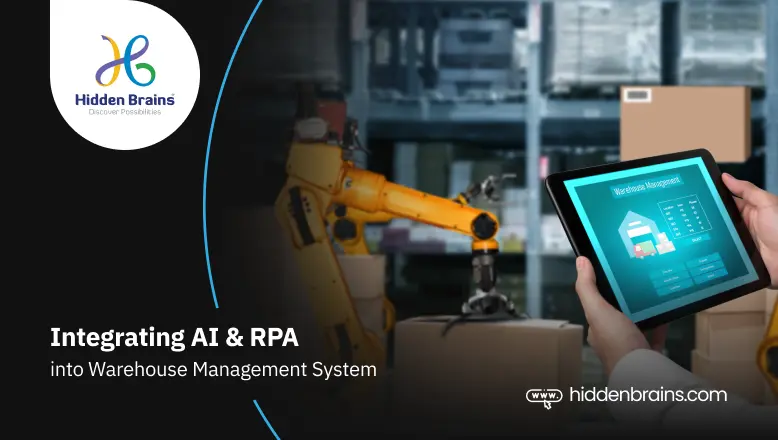Quick Summary:
The recent U.S.-Saudi Arabia AI partnership marks a transformational moment for tech startups globally. Spearheaded by the HUMAIN-AMD $10B joint venture and backed by vast investments over $600B in deals spanning cloud infrastructure, data centers, and hyper-scale computing, this alliance is building next-generation sovereign AI capacity. It’s not just about capital; it’s about ownership, open architecture, and distributed infrastructure. For startups, this means better access to AI compute power, lower latency via edge networks, and more opportunities to align with global partnerships. If you’re building in AI, this shift offers game-changing access, flexibility, and scale.
U.S. President Donald Trump’s first visit to Saudi Arabia wasn’t just a diplomatic event. It was a turning point for the global tech industry.
From AI to infrastructure, the deals announced during this visit are shaping what’s next for startups, investors, and innovation leaders worldwide.
One headline deal stood out. Saudi Arabia’s new AI powerhouse, HUMAIN, has joined hands with U.S. chip-maker AMD in a $10 billion partnership. Their goal? To build a global AI hyperscaler starting right in the Middle East.
But that’s just the beginning.
In total, over $600 billion in agreements were signed, covering everything from data centers and cloud tech to advanced computing, defense, and space.
For tech entrepreneurs, this isn’t just news. It’s an opportunity.
The world is entering a new phase of sovereign AI, border-less innovation, and bold investment in future infrastructure. And as these two nations come together on tech, the ripple effects could reach every startup everywhere.
What actually happened, and why does it matter to you?
The Rise of Sovereign AI and Strategic Tech Deals
Why is it a big deal — and how does it impact you?
Let’s take a closer look.
One name that stole the spotlight — HUMAIN.
It’s Saudi Arabia’s newly launched AI powerhouse, backed by the Kingdom’s mighty Public Investment Fund (PIF). And it’s already making global headlines.
In a landmark $10 billion joint venture, HUMAIN has teamed up with U.S. tech giant AMD to build a next-gen AI hyperscaler.
Let that sink in — not just buying tech, but co-building it from the ground up.
The plan starts with 50 MW of AI computing power by late 2025. From there, it scales up to 500 MW+ over the next five years, powered by AMD’s full tech stack: CPUs, GPUs, and ROCm software.
This isn’t just hardware deployment. This is a global-first collaborative infrastructure model.
What makes it different? Previous sovereign AI efforts mostly involved countries buying tech and plugging it in.
But this? It is about owning the blueprint, designing the backbone, and shaping the future of computing at a national level.
HUMAIN and AMD aren’t just serving local demand either. They’re building capacity to support AI labs, startups, and governments worldwide.
The Takeaway!
This deal signals the rise of a new era, one where AI sovereignty becomes a core strategy, not a buzzword. And Saudi Arabia just made the opening move.
The USA-Saudi AI Hyperscaler: What It Means
This joint venture isn’t just big — it’s ‘GLOBAL’.
HUMAIN, AMD, and Cisco are joining forces to create a multi-country AI infrastructure that starts in Saudi Arabia and expands worldwide, including the United States.
The numbers are impressive
It will begin with 50 megawatts (MW) of AI computing power by late 2025. In five years, it’s set to scale up to 500MW, with multi-exaflop capacity coming right after. That’s serious power — enough to support advanced AI workloads at a national and global level.
So, how does this affect the world beyond Saudi Arabia and the U.S.?
For governments, it’s a chance to secure high-performance AI capacity without relying solely on external vendors.
For startups, it lowers the barriers to access, making world-class computing more available and affordable.
And for AI labs, it unlocks the freedom to experiment, scale, and build without bottlenecks.
One of the Smartest Moves in This Deal
It’s built on open architecture, meaning it’s flexible, adaptable, and ready to support a wide range of AI frameworks. From PyTorch to SGLang, it’s all supported under AMD’s ROCm software stack.
Then there’s the idea of “silicon diversity.”
Instead of relying on one chipmaker, Saudi Arabia is investing in AMD, Nvidia, Groq and others, building strength, speed, and innovation across the AI pipeline.
The Takeaway!
This hyperscaler isn’t just a mega project. It’s a strategic playbook for future-ready nations, laying the groundwork for an AI-powered global economy.
Data, Energy, and Edge: A New Infrastructure Map
Saudi Arabia isn’t just investing in AI, it’s building the backbone that makes AI possible.
At the heart of this shift lies a powerful combo: energy capacity and data center development.
With abundant energy resources and a bold national vision, Saudi Arabia is positioning itself as a global leader in AI-ready infrastructure.
The AMD-HUMAIN joint venture will start locally, deploying AI computing across next-gen Saudi data centers. But that’s only phase one.
The Plan
Cross-border expansion, with new centers headed for the United States and beyond.
It creates a new kind of infrastructure map — one that blends:
- Cloud capabilities for scale
- Edge computing for real-time speed
- Data sovereignty for national control and security
It’s no longer about storing everything in one place.
It is about creating distributed intelligence, where data, computing, and innovation flow freely across regions yet remain aligned with local priorities.
Startups, Take Note
This shift opens up huge opportunities for building AI-native applications that thrive on edge networks and leverage sovereign platforms.
As global tech power balances shift, early movers stand to gain the most.
It’s a chance to build smarter, faster, and more independent from traditional tech strongholds.
The world’s infrastructure is evolving. Saudi Arabia’s moves are also helping to redraw the map.
A Broader Innovation Wave: What the $600B Means for the U.S.
The recent visit wasn’t just about Saudi’s growth — it marked a massive investment wave into the United States as well.
A total of $600 billion in agreements have been announced, and a significant portion of that is flowing directly into U.S. tech, infrastructure, and innovation.
Let’s break it down.
From AI data centers to energy solutions, space tech to healthcare, Saudi-backed capital is now fueling a wide range of future-focused sectors in the U.S.
Some standout moves:
- $20 billion from DataVolt to develop AI data centers and energy infrastructure in the U.S.
- Tech giants like Google, Oracle, Salesforce, AMD, and Uber are now tied into long-term strategic partnerships across both countries.
- Healthcare, mobility, and space innovation are seeing dedicated Saudi investments, including plans for a high-capacity IV fluid plant in Michigan and a CubeSat launch on NASA’s Artemis II mission.
What Does This Mean for Startups and Entrepreneurs?
In simple terms: more capital, more opportunity, more global access.
This kind of investment fuels U.S.-based innovation, strengthens R&D, and opens the door to cross-border scaling for new ventures. It also signals something bigger — a shift in how nations collaborate. It isn’t just funding. It’s co-innovation at scale.
The Result
A stronger, more connected startup ecosystem — one that benefits from global partnerships while still building on U.S. soil.
What Tech Entrepreneurs Should Watch Closely
A lot is happening — big numbers, global names, complex alliances.
But for tech startups and entrepreneurs, the message is simple: the game is changing.
The recent USA-Saudi developments are more than headlines.
They signal a deep shift in how technology will be built, funded, and deployed across borders.
Here’s what early-stage founders, scale-ups, and innovators should keep their eyes on:
1. AI Infrastructure Is Becoming Global
Gone are the days when startups had to rely solely on Silicon Valley clouds.
With AI hyperscalers like HUMAIN powered by AMD and Cisco, we’re entering a phase where global, sovereign infrastructure is becoming accessible and competitive.
For startups, this means more options for computing, lower latency through edge networks, and diversified platforms to build on.
2. Strategic Public-private Partnerships Are the New Normal
It’s no longer just private VCs or government grants.
Today’s biggest moves are happening at the intersection of governments and global tech players.
Startups that can align with national priorities — think health, mobility, defence, and climate — may find doors opening faster and bigger than ever before.
3. Silicon Diversity = Opportunity
With countries like Saudi Arabia embracing “silicon diversity,” we’re moving beyond a single-chip, single-cloud world.
This shift creates room for new players, custom AI stacks, and innovative tooling across the ecosystem.
Startups in chip design, AI tooling, or specialized software space can ride this wave, especially if they bring fresh thinking to open architecture environments.
4. Data Sovereignty Will Shape How You Build
As countries get serious about owning and protecting their data, expect more regulation around where and how data flows.
Smart startups will design systems that are data-resilient — able to operate across jurisdictions, follow local rules, and still scale globally.
Think privacy by design, multi-region support, and localized AI models.
5. More Capital is Looking for Builders
With Saudi investing billions into U.S. startups, infrastructure, and innovation, the capital pool is growing fast.
But this capital won’t just chase valuations. It will seek builders, solutions, and cross-border impact.
If your product solves a real-world problem and scales well, the opportunities and the funding are closer than you think.
In Short…The old tech map is being redrawn. Startups that stay alert, adapt fast, and build with a global context will be the ones that thrive in this new era. Because the future isn’t just being imagined in Silicon Valley anymore. It’s being co-built from Riyadh to San Francisco.
The USA-Saudi Tech Partnership- The Bigger Picture
It is not just one big deal. It’s a strategic tech bridge that flows both ways. On one side, Saudi Arabia is investing heavily in U.S. soil. On the other hand, U.S. tech giants are doubling down on Saudi Arabia’s AI future.
$80 billion for Future-forward Innovation
The White House confirmed that Google, Oracle, Salesforce, AMD, Uber, and DataVolt will collectively invest $80 billion into transformative tech across both nations.
While exact project details are still unfolding, this massive pool points to one thing, a long-term commitment to shared innovation.
Partner with Hidden Brains: Build Bold, Scale Smart
In a world where AI is reshaping the rules, tech startups need more than just ambition; they need the right partner. At Hidden Brains, we help you decode the complexities of modern AI with clarity, speed, and purpose.
As a leading AI development company, we offer a full spectrum of services, from idea to execution. Whether you’re aiming to build intelligent apps, scale with AI-powered infrastructure, or transform your operations with data-driven insights, we’re here to help.
Final Words
The recent U.S.-Saudi visit is more than just a news headline. It’s a turning point. Big tech moves are shaping the future fast. From powerful AI hubs to cross-border partnerships, the game has changed. For startups, this is the time to act. Those who adapt, build smart, and think globally will lead the next wave. The world of tech is opening new doors. Are you ready to step through?































































































![Sales & Distribution [Oil & Gas] Sales & Distribution [Oil & Gas]](https://www.hiddenbrains.com/blog/wp-content/themes/blankslate/assets/images/sales_and_distribution-icon.74d08193.svg)

![Fluid Terminal Management [Oil & Gas] Fluid Terminal Management [Oil & Gas]](https://www.hiddenbrains.com/blog/wp-content/themes/blankslate/assets/images/fluid_terminal_management-icon.4b3a27a4.svg)































![Sales & Distribution [Oil & Gas] Sales & Distribution [Oil & Gas]](https://www.hiddenbrains.com/blog/wp-content/themes/blankslate/assets/images/sales_and_distribution-icon.74d08193.svg?1.0.0)
![Fluid Terminal Management [Oil & Gas] Fluid Terminal Management [Oil & Gas]](https://www.hiddenbrains.com/blog/wp-content/themes/blankslate/assets/images/fluid_terminal_management-icon.4b3a27a4.svg?1.0.0)



























































































































































































